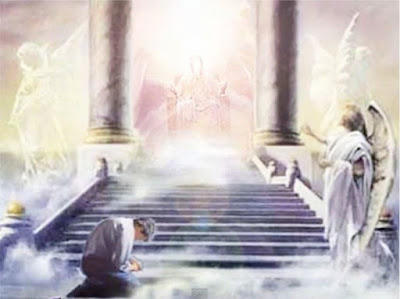A |
S the hart panteth after the water brooks, so panteth my soul after thee, O God. 2 My soul thirsteth for God, for the living God: when shall I come and appear before God? 3 My tears have been my meat day and night, while they continually say unto me, Where is thy God? 4 When I remember these things, I pour out my soul in me: for I had gone with the multitude, I went with them to the house of God, with the voice of joy and praise, with a multitude that kept holyday. 5 Why art thou cast down, O my soul? and why art thou disquieted in me? hope thou in God: for I shall yet praise him for the help of his countenance. Psalms 42:1-5
A plaintive and confessional hymn written by Joseph Dacre Carlyle in 1902. It follows in the wake of Psalm 42 (above). There are two hymns under which the title falls in the 1940 Hymnal - Burford (by Purcell) and Martyrdom (by Hugh Wilson). Both tunes very effectively convey the spirit of repentance that should precede every Holy Communion Service. The words speak for themselves in conveying that same meaning in the words of the Psalmist.
Lord when we bend before thy throne
Lord, when we bend before thy throne,
and our confessions pour,
teach us to feel the sins we own,
and hate what we deplore.
Our broken spirits pitying see;
true penitence impart;
then let a kindling glance from thee
beam hope upon the heart.
When we disclose our wants in prayer,
may we our wills resign,
and not a thought our bosom share
which is not wholly thine.
1 Lord, when we bend before thy throne, and our confessions pour, teach us to feel the sins we own,and hate what we deplore. The Prayer of General Confession in the traditional Prayer Book set the stage for our taking of the elements of Bread and wine in the spirit of humility and repentance:
A |
LMIGHTY God, Father of our Lord Jesus Christ, Maker of all things, Judge of all men; We acknowledge and bewail our manifold sins and wickedness, Which we, from time to time, most grievously have committed, By thought, word, and deed, Against thy Divine Majesty, Provoking most justly thy wrath and indignation against us. We do earnestly repent, And are heartily sorry for these our misdoings; The remembrance of them is grievous unto us; The burden of them is intolerable. Have mercy upon us, Have mercy upon us, most merciful Father; For thy Son our Lord Jesus Christ’s sake, Forgive us all that is past; And grant that we may ever hereafter Serve and please thee In newness of life, To the honour and glory of thy Name; Through Jesus Christ our Lord. Amen. 1928 Book of Common Prayer
Such hymns of the faith as this present one help to focus our hearts on the meaning of repentance, faith, and confession of sins. If we could only feel a tiny episode of the pain our sins caused our Lord on the cross, perhaps we would consider them in greater regret and humble lamentation.
2 Our broken spirits pitying see; true penitence impart; then let a kindling glance from thee beam hope upon the heart. No one comes before the Cross of our Lord without a broken spirit. “The sacrifices of God are a broken spirit: a broken and a contrite heart, O God, thou wilt not despise.” Psalms 51:17 There are no material or intellectual sacrifices we can make for the great sacrifice has already been made at Golgotha. Our only sacrifice we can bring to the Lord’s Table is “a broken and a contrite heart.” If we have approached the Lord’s Table in the Spirit of Love, Faith, and Humility, we may expect the favor of our Lord’s Presence to burn in our hearts and to lift our unbecoming yokes.
3 When we disclose our wants in prayer, may we our wills resign, and not a thought our bosom share which is not wholly thine. Indeed, we must cast off our sinful self-wills and accept the will of our Lord if we are to enjoy the Perfect Law of Liberty. We must include in every prayer uttered – “Not our wills, but thine, be done.” “Let this mind be in you, which was also in Christ Jesus.” Philippians 2:5 If we live by that Mind that is in Christ, we shall do well.




